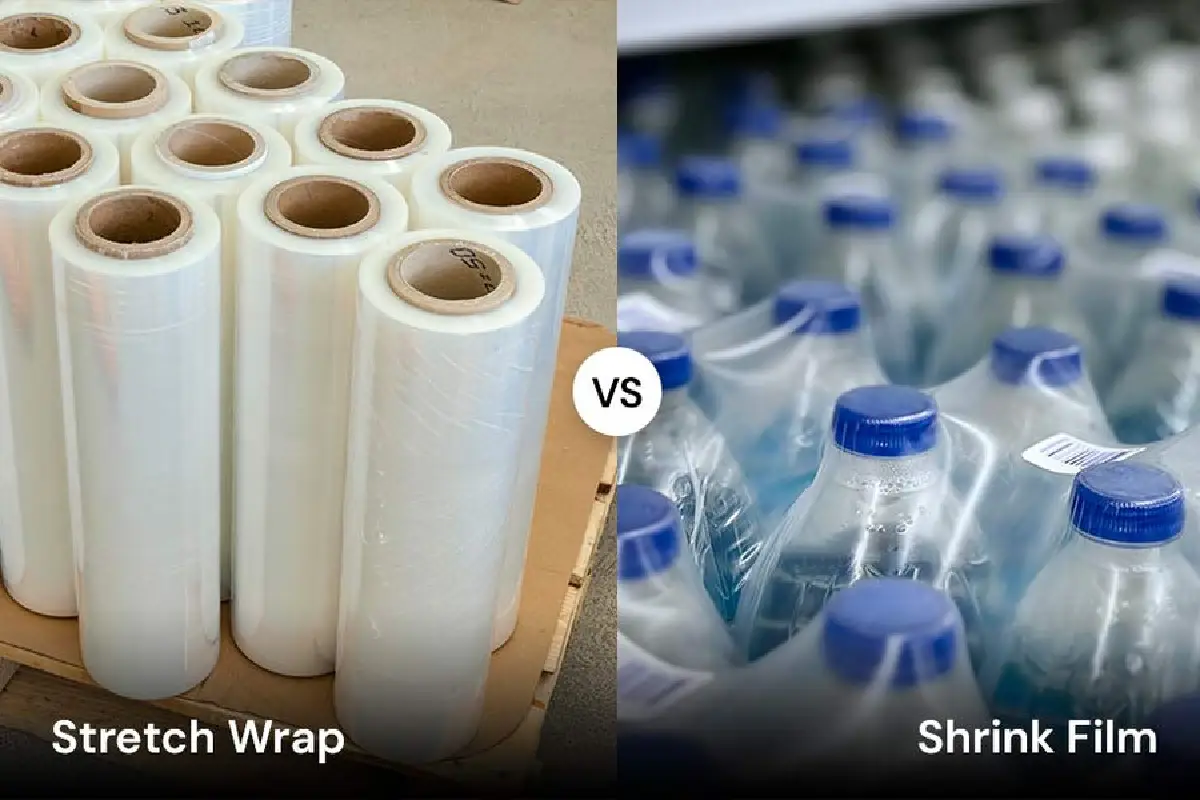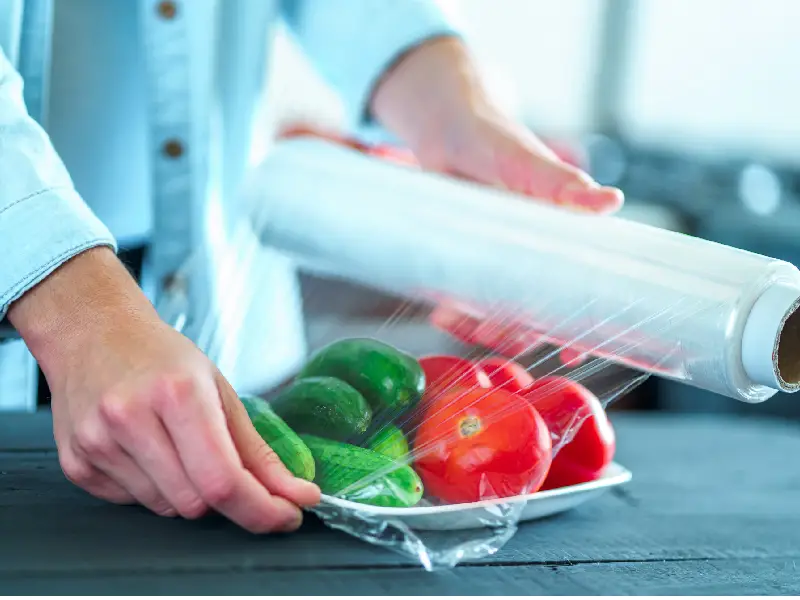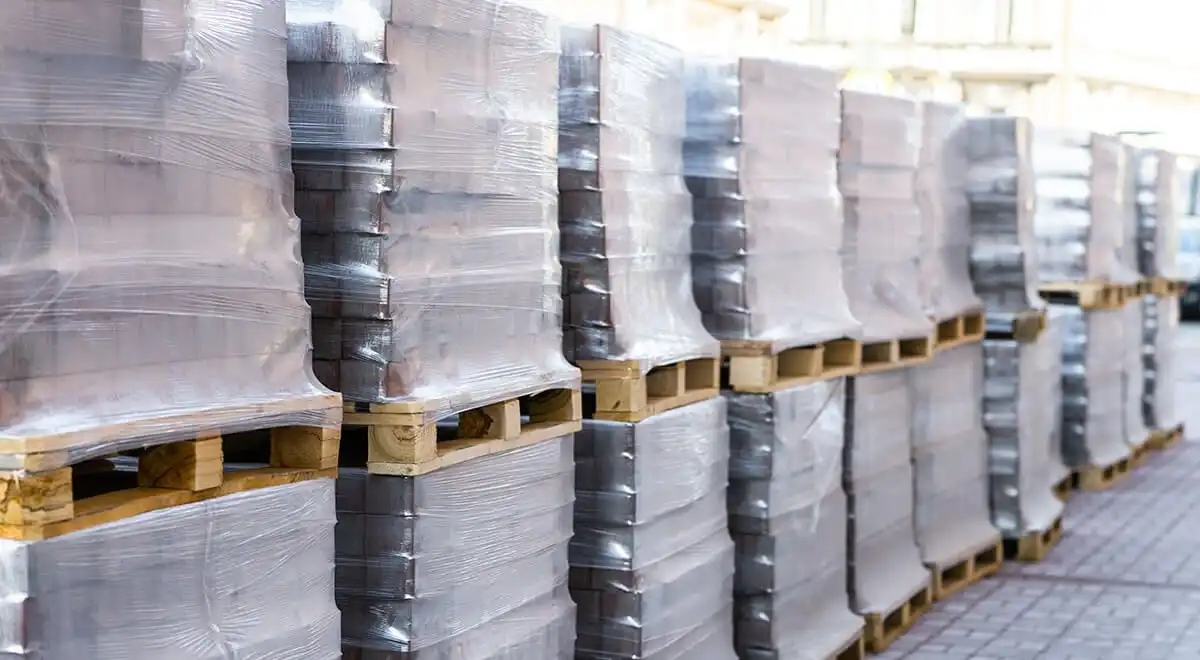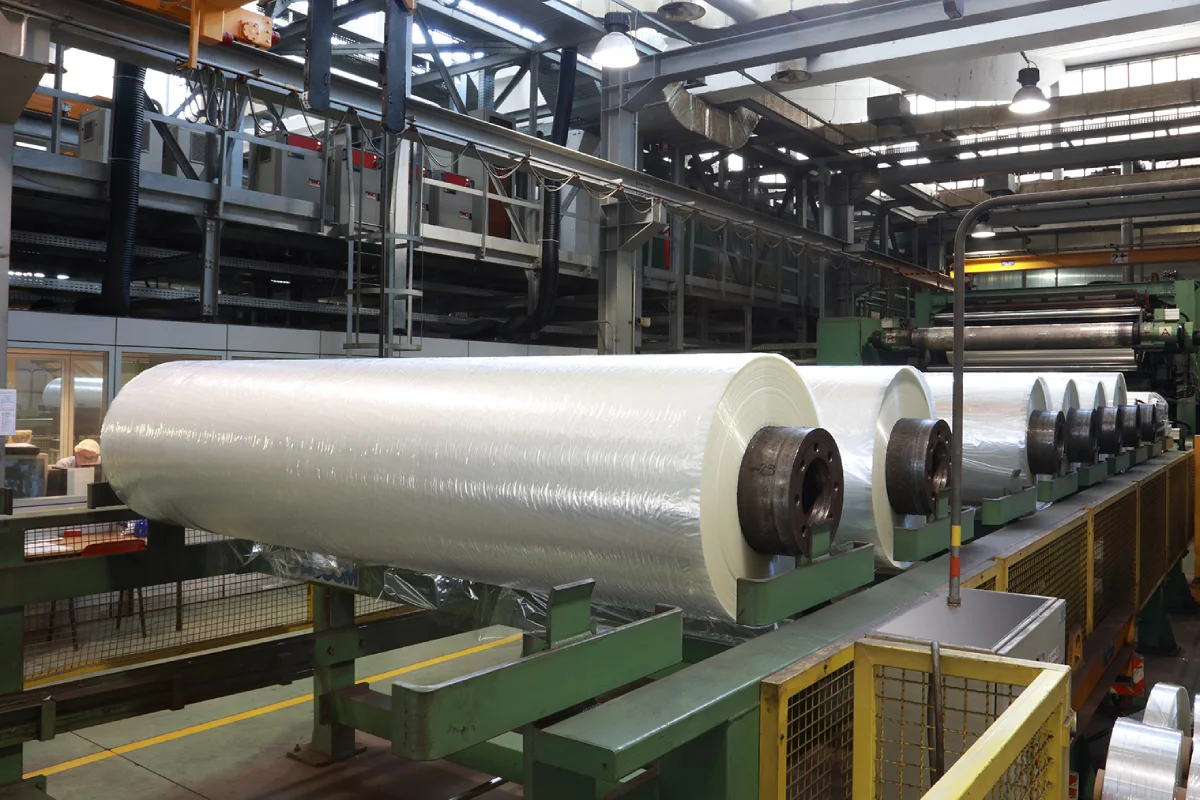If you’re new to the world of packaging, you might be confused about the difference between stretch film and shrink film. These terms are often used interchangeably, but they actually serve different purposes.
Both play a major role in packaging, helping businesses protect and transport products efficiently. Choosing the right one depends on factors like durability, cost, and application method. In this guide, we’ll break down their key differences and help you decide which option suits your packaging needs best.
Stretch Film vs. Shrink Film: Key Differences
Both stretch film and shrink film are made of plastic and are widely used in various industries. However, their application methods, physical properties, and performance set them apart.
| Feature | Stretch Film | Shrink Film |
|---|---|---|
| Application | Stretches and wraps around products without heat. | Requires heat to shrink tightly around the product. |
| Elasticity | Highly stretchable and flexible. | No elasticity; contracts with heat. |
| Main Use | Securing and stabilizing products during transportation. | Creating a tight, professional-looking package. |
| Cost Efficiency | More cost-effective, no need for heat-sealing machines. | Higher cost due to heat-sealing equipment. |
| Protection Level | Shields from dust and moisture but offers less overall protection. | Provides better protection from external elements. |
What Is Shrink Film?
Shrink film is a polymer-based plastic wrap that shrinks when exposed to heat, tightly conforming to the shape of the product. It’s commonly used for food, beverages, electronics, and retail packaging.
Benefits of Shrink Film
✔ High Clarity & Aesthetic Appeal – Enhances the visual appeal of packaged products.
✔ Moisture & Contaminant Resistance – Protects against dust, dirt, and humidity.
✔ Secure Fit – Shrinks around items, keeping them compact and tamper-proof.
✔ Versatile Use – Works with various products, from food to electronics.
Common Uses of Shrink Film
1. Food & Beverage Packaging
Shrink film extends the shelf life of food and drinks while keeping them fresh and contamination-free.
Popular applications:
✔ Multi-pack bundling of water bottles, sodas, and juices
✔ Packaging of bread, cakes, biscuits, and pastries
✔ Protection of meat, poultry, and seafood
✔ Wrapping of fruits, vegetables, dairy products, and snacks
2. Industrial & Electronics Packaging
Shrink film is widely used for electronics, tools, and industrial equipment to prevent damage during shipping.
Popular applications:
✔ Packaging of circuit boards and computer parts
✔ Wrapping of cables, wires, and phone accessories
✔ Protection of power tools and hardware
3. Personal Care & Cosmetic Packaging
Cosmetic and hygiene products need to stay clean and tamper-free—shrink film ensures that.
Popular applications:
✔ Wrapping shampoos, soaps, and lotions
✔ Sealing perfumes, deodorants, and makeup
4. Gift & Promotional Packaging
Shrink film is a go-to for gift sets, promotional bundles, and branded merchandise.
Popular applications:
✔ Packaging of corporate giveaways and promotional kits
✔ Wrapping gift baskets and multi-product bundles
What Is Stretch Film?
Stretch film is a highly elastic plastic wrap used to bundle and protect products without heat. It’s most commonly applied in logistics and warehousing.
Benefits of Stretch Film
✔ Superior Load Stability – Holds packages tightly together during transport.
✔ High Stretchability – Wraps securely without heat.
✔ Cost-Effective – Requires no special machinery, reducing operational costs.
✔ Dust & Moisture Protection – Keeps products clean and intact.
Common Uses of Stretch Film
1. Warehouse & Logistics
Stretch film is ideal for securing pallets and bulk shipments, preventing items from shifting or toppling.
Popular applications:
✔ Stabilizing cartons and stacked boxes
✔ Wrapping industrial equipment and spare parts
✔ Protecting fragile items during shipping
2. Food Industry Packaging
While not as airtight as shrink film, stretch film is still useful in food storage and handling.
Popular applications:
✔ Wrapping fruits, vegetables, and fresh produce
✔ Protecting meat, poultry, and seafood from contamination
✔ Sealing bakery products like bread and pastries
3. Bulk & Retail Packaging
Stretch film is great for grouping multiple items together for easier handling.
Popular applications:
✔ Bundling multipacks of beverages
✔ Securing household products, appliances, and furniture
Which One Should You Choose?
Choosing between shrink film and stretch film depends on your packaging priorities:
✔ Need a strong, protective seal for retail-ready products? → Shrink film is the best option.
✔ Looking for an economical way to secure shipments? → Stretch film is your answer.
For expert guidance on packaging solutions, consult the specialists at Raga Parsian. We’ll help you find the perfect wrap for your products!
Final Thoughts
Both shrink film and stretch film play a crucial role in modern packaging. Whether you’re focused on product presentation, durability, or cost savings, knowing their differences will help you make the best choice.
Got questions about custom packaging solutions? Contact Raga Parsian today!





